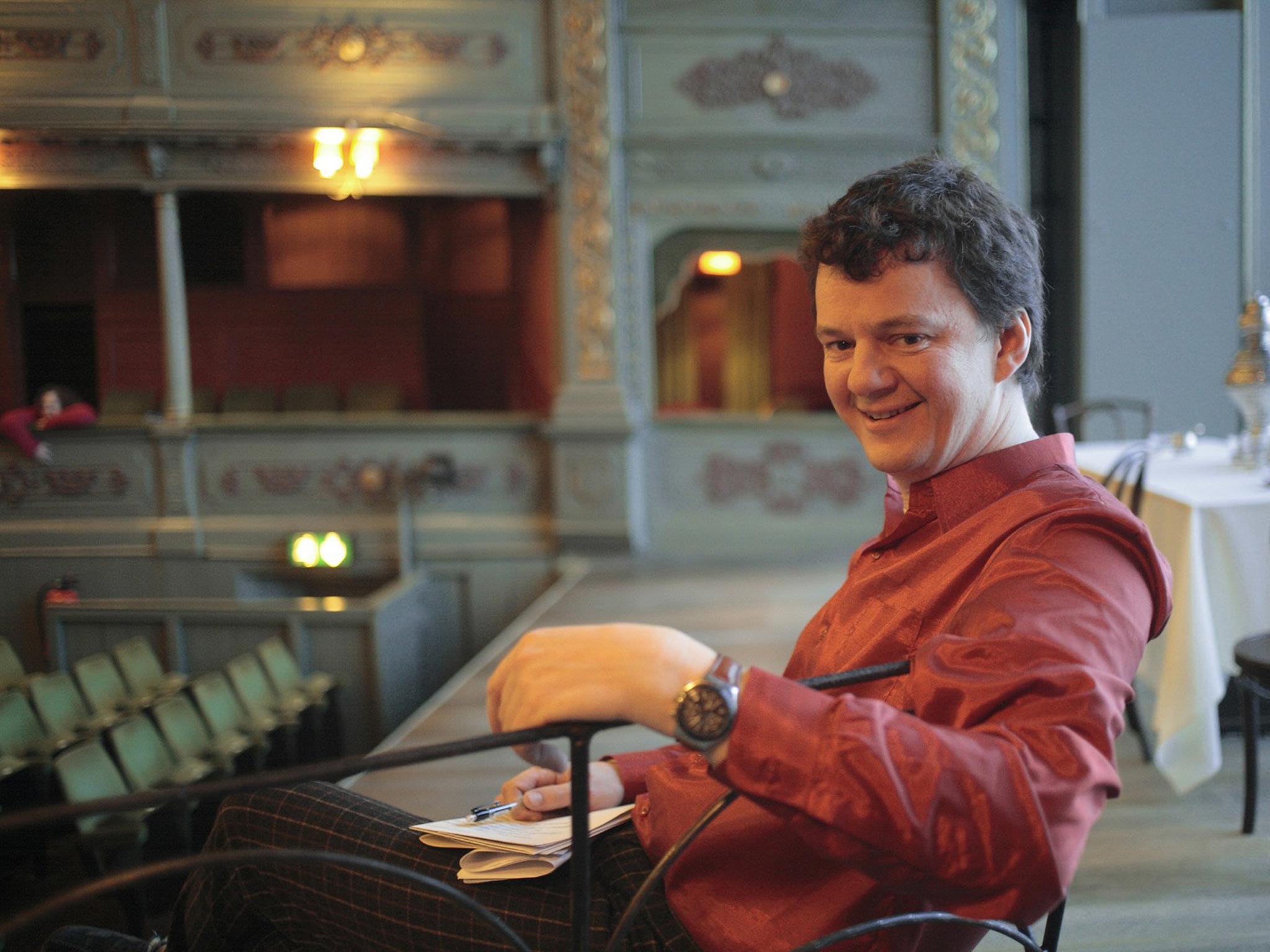When it’s right to walk out mid act
The art of leaving is a prerogative of audiences in all art forms


Your support helps us to tell the story
From reproductive rights to climate change to Big Tech, The Independent is on the ground when the story is developing. Whether it's investigating the financials of Elon Musk's pro-Trump PAC or producing our latest documentary, 'The A Word', which shines a light on the American women fighting for reproductive rights, we know how important it is to parse out the facts from the messaging.
At such a critical moment in US history, we need reporters on the ground. Your donation allows us to keep sending journalists to speak to both sides of the story.
The Independent is trusted by Americans across the entire political spectrum. And unlike many other quality news outlets, we choose not to lock Americans out of our reporting and analysis with paywalls. We believe quality journalism should be available to everyone, paid for by those who can afford it.
Your support makes all the difference.The other day, I attended the Bristol Proms, which attempt to present classical music in a new way. Before each concert at the Bristol Old Vic, the theatre’s artistic director, Tom Morris, took to the stage to spell out the four “rules” of the occasions – you can clap whenever you like (i.e. forget snobbery about not clapping between movements); you can take photos as long as you tweet them; you can take drinks into the theatre; and no one is allowed to say “shush!”
I wonder what Tom would make of the Theatre Charter, launched last month to “improve audience etiquette”. It already has more than 1,700 signatories, and high-level supporters including Stephen Fry. Among points of etiquette, the charter obliges theatregoers to turn off their mobile phones, not film or photograph action on stage, be “quiet and still” once the performance has started, and only unwrap sweets before the show commences or during loud applause.
I can live with much of that, though as one of life’s fidgets I might fall foul of the “quiet and still” clause. But I do part company with the charter and its supporters when it comes to a decree that theatregoers should never leave a show mid-performance “unless for medical or emergency reasons.” It adds: “If bored, leave discreetly at the interval.”
Sorry, I won’t be signing up. I don’t want to go over the top and speak of human rights, but the act of walking out is a prerogative of audiences in all art forms. I will admit that on my conscience is the fact I once walked out of a play in one of the smaller venues at the Edinburgh Festival, and it involved tramping across the stage, causing the actor to make his annoyance felt with a gesture. I may have deserved that, but generally I will defend walking out as a legitimate response to tedious fare, just as spontaneous applause or laughter is a response to good fare.
Can actors really not cope with the sight of a figure in the auditorium heading for the exit? I am intrigued by the idea that we can only leave in the event of an emergency. Perhaps the day will come when we have to show a doctor’s note at the box office, indicating that we might have to leave early. Or maybe it will be necessary to fake a crisis, doubling up in pretend agony in the stalls. This charter could make actors of us all.
If walking out is not a basic right, it is at the very least a privilege that comes with paying for a ticket. Stop us from walking out, and we might not walk in.
The Arts Council is failing us
I’ve complained here in the past that the Arts Council, the unelected quango that distributes millions of pounds to arts companies, is unaccountable for its decisions, and those decisions are too often not explained. The axing of the entire grant to the Orange Tree theatre in Richmond, Surrey, has angered and puzzled some distinguished names. Dame Judi Dench, David Tennant, Benedict Cumberbatch and Sir Richard Eyre are among 1,000 actors and directors who have signed a letter of protest. The actors’ union Equity says the actors and directors wanted to understand “why a theatre we value so dearly is considered unworthy of financial support”. Does it not occur to the Arts Council that if 1,000 of theatre’s biggest names don’t understand what the reasons behind the decision are, then it is failing in the most basic duty of explaining what it is doing?
No children allowed
The artist Jake Chapman caused a fair bit of controversy (and publicity) this week after telling The Independent on Sunday that it’s a waste of time allowing children into art galleries, because, he says, children cannot appreciate the complexities of art. Some say it is typical of this studiedly controversial figure to say something outrageous when he and his brother Dinos have an exhibition to publicise. They are indeed shortly to open a show at the Jerwood Gallery in Hastings. But I’m sure that this isn’t a publicity stunt, and that Jake is taking a principled stand. As a man of principle, he will, I trust, insist that the Jerwood does not allow children or families into the exhibition. He wouldn’t want to profit from something he vehemently disapproves of, after all.
Join our commenting forum
Join thought-provoking conversations, follow other Independent readers and see their replies
Comments